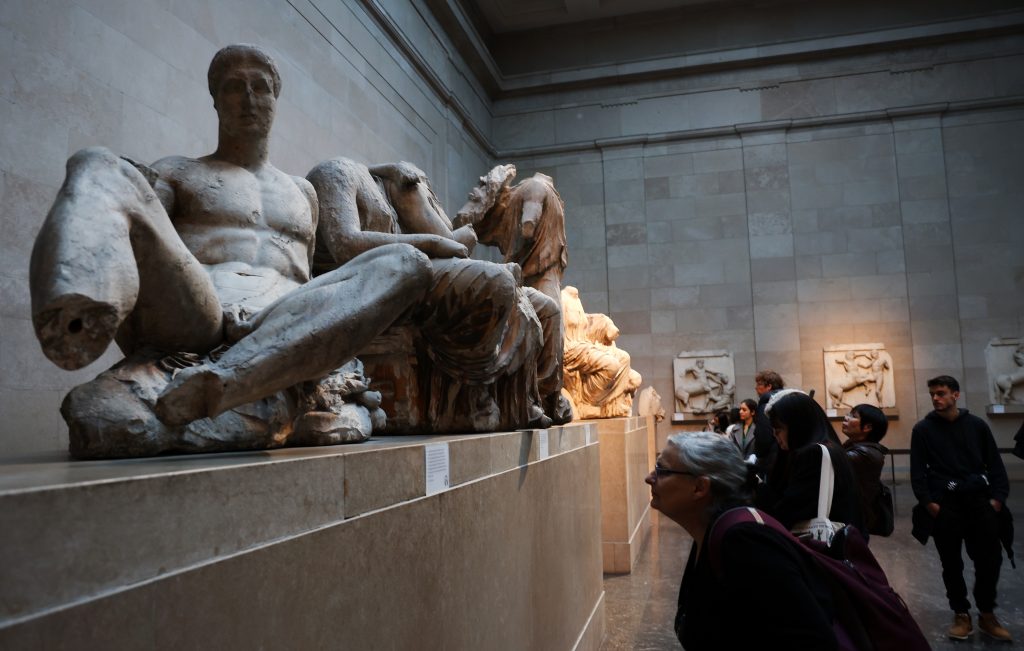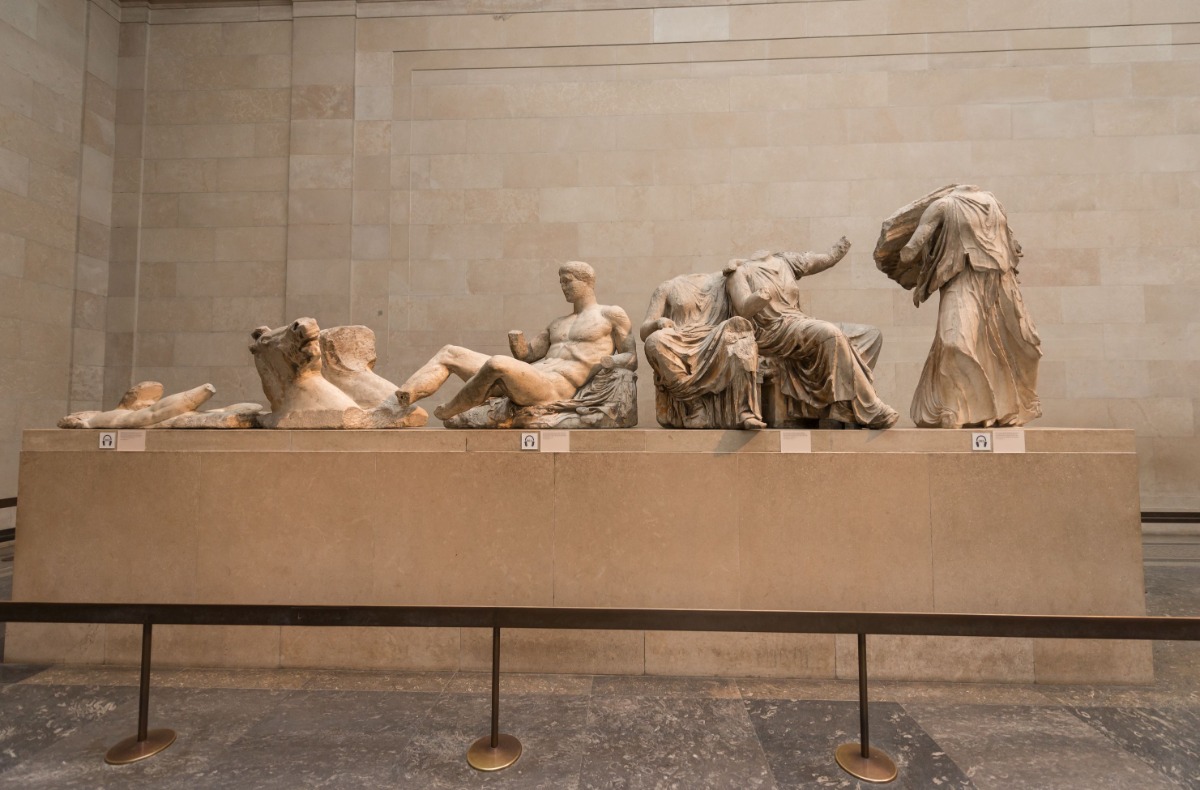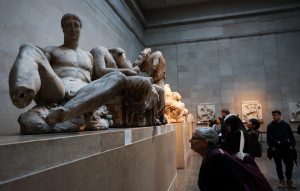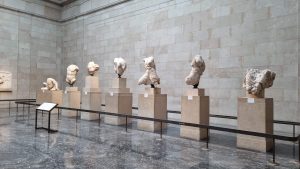Zeynep Boz, from Turkey’s Ministry of Culture and Tourism, surprised many at the recent UNESCO meeting when she supported Greece in its plight to get back the famous Parthenon marbles from the British Museum.
The intervention of Turkey’s representative came during the 24th session of the Intergovernmental Committee for Promoting the Return of Cultural Property to Countries of Origin (ICPRCP) of UNESCO.
Turkey’s Support
Specifically, Boz, who is head of the department for combatting the illicit trafficking of antiquities in Turkey, refuted the British Museum’s long-standing claim that Britian legally purchased the friezes and sculptures from the Ottoman empire through a firman– an official legal document- which gave British diplomat Lord Elgin permission to cut-off and haphazardly transfer the marbles to Britain in 1816.
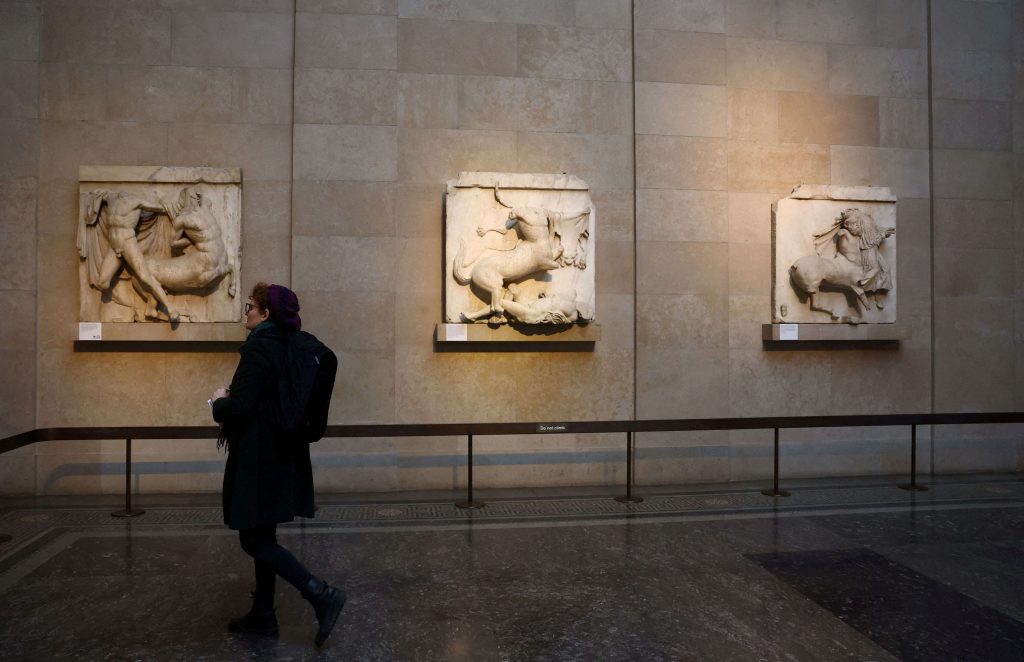
A woman views examples of the Parthenon sculptures, sometimes referred to in the UK as the Elgin Marbles, on display at the British Museum in London, Britain, November 29, 2023. REUTERS/Hannah McKay
Boz stated, at the UNESCO meeting in Paris, that no such firman exists in Turkey’s Ottoman-era records.
In detail, she said, “We are not aware of the existence of any document that legitimizes this purchase, which was made at the time by the colonizers of the United Kingdom, so I do not think there is any room to discuss its legality even (…) according to the law of the time. We eagerly look forward to celebrating the return of the Sculptures, as we believe that it will signal a change in behavior towards the protection of cultural goods and will be the strongest message to be given worldwide,” said the Turkish representative.
Hidden Agendas?
The timing of the statement has raised eyebrows, particularly as Turkey has recently come under fire from UNESCO and Greece for converting the significant Byzantium Chora Monastery in Istanbul into a Muslim mosque.
Moreover, Turkey is also in conflict with the British Museum over the return of several antiquities originating from Turkey, including: the Nereid monument, the Lion of Knidos and part of the Mausoleum of Halicarnassus.
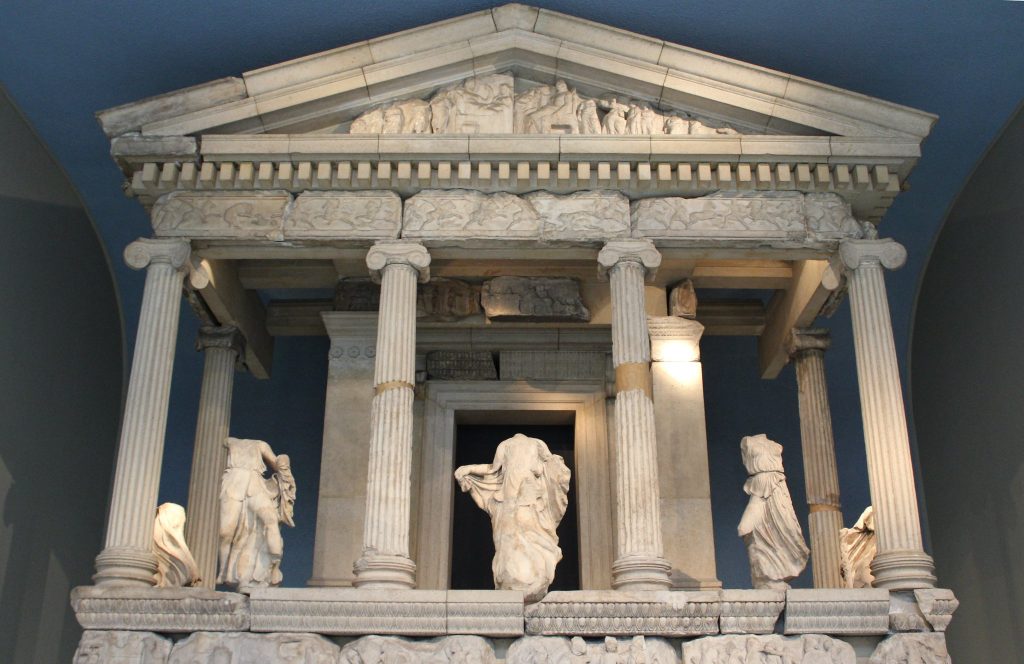
Political analysts wonder if Turkey has ulterior motives, whether or not Turkey’s support is sanctioned from the country’s leader, President, Recep Tayyip Erdoğan, and if it was on the agenda of the recent meeting between the President and Prime Minister Kyriakos Mitsotakis in Ankara.
Dispelling Rumors
In an interview with TO VIMA, Boz dispels the many rumors about Turkey’s motivations.
Boz explained, “Greece isn’t alone in reclaiming the sculptures. Turkey will support Greece in whatever is needed.” And, she categorically denies that there was political expediency behind her intervention.
“It was not a counterweight for the Chora monastery in Istanbul, as it is marketed. It is an independent position, even outside of the context of normalized Greek-Turkish relations. It is a result of our mutual cooperation in the fight against the smuggling of cultural goods,” she argues.
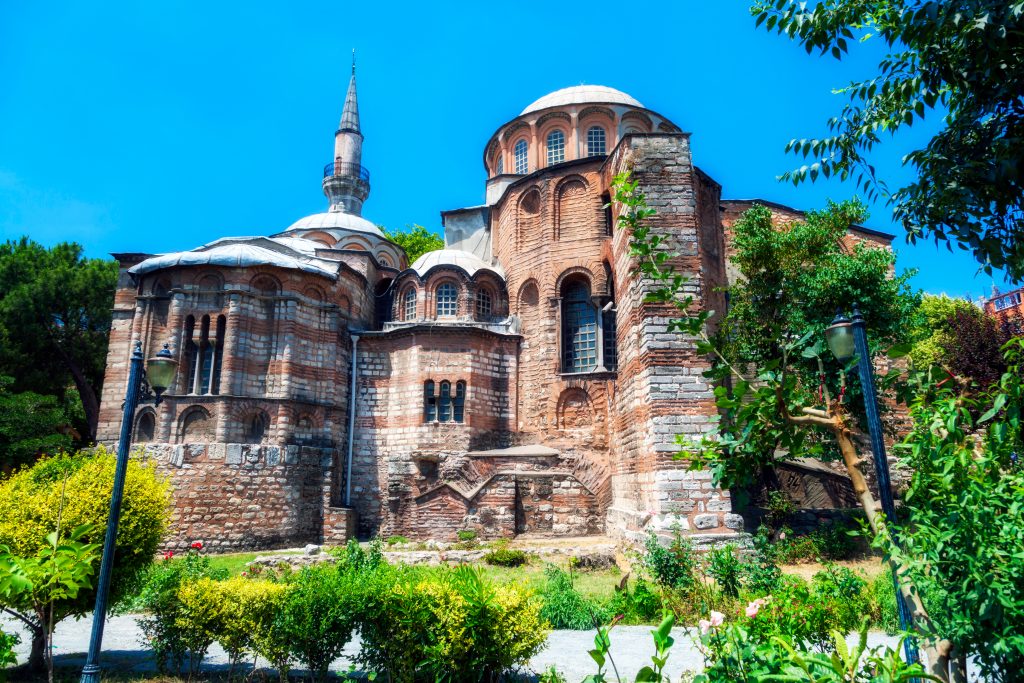
The Church of the Holy Saviour in Chora is a medieval Byzantine Greek Orthodox church preserved as the Chora Museum (14th century), Edirnekapi, Istanbul, Turkey. Shutterstock
However, Boz reveals to TO VIMA that before she attended the UNESCO summit, she received the official “green light” from the Minister of Culture of Turkey Mehmet Nuri Ersoy.
The Turkish Minister visited Greece and the Acropolis and the Acropolis museum in May and, following his request for more information on the Parthenon marbles, told the Ministry “to continue to support Greece in its case by all means.”
Commenting on whether or not her intervention at UNESCO was a game-changer, Boz says “I don’t think so. I repeated something that is known. The United Kingdom refers to an Italian translation of a document which is on a piece of paper without a stamp nor a signature. It isn’t valid without the original.”
What Turkish Analysts Say
Considering the potential of the President himself sanctioning the statement, Turkish political analyst Ali Tirali from the Turkish think-tank Ideapolitik, says “I doubt that President Erdoğan himself had information about Mrs. Boz’s intervention, although he can use this gesture of goodwill in Turkish-Greek relations”.
Meanwhile, Turkish analyst Dora Megücs thinks, “Turkey’s Ministry of Tourism and Culture is also in conflict with the British Museum over the return of the Nereids Monument, the Lion of Knidos and part of the Mausoleum of Halicarnassus,” so the intervention was aligned with Turkey’s own priorities.
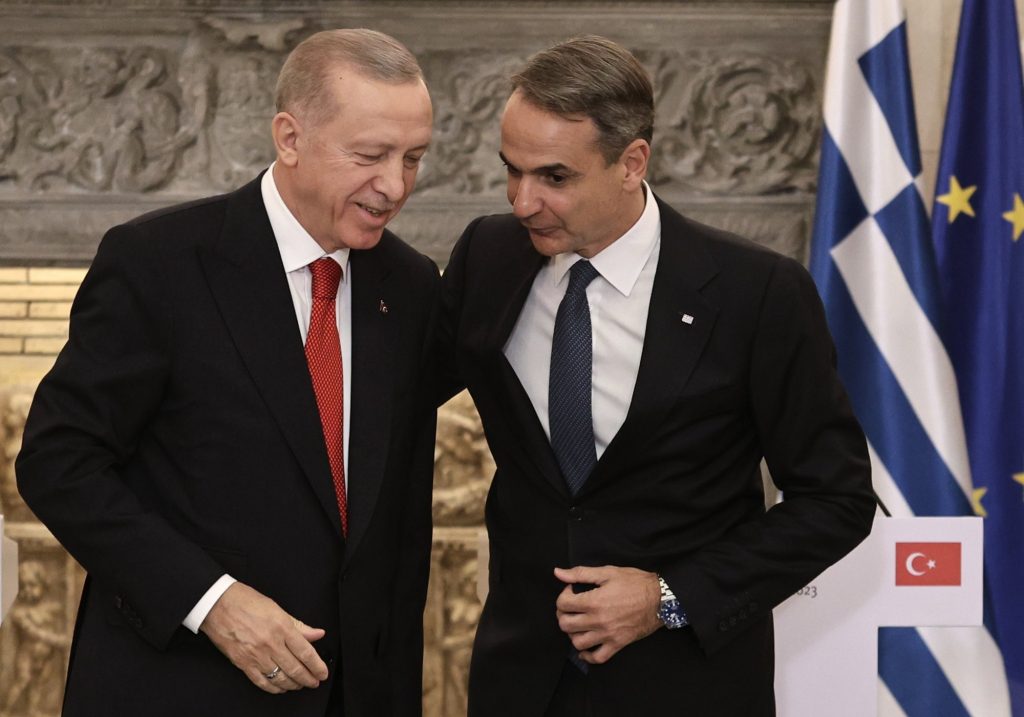
But Megücs also says that perhaps this is “the first tangible result of the bilateral agreements signed [between Greece and Turkey] on December 7 (2023)”.
The December 7 agreement is entitled the “Athens Declaration on Friendly Relations and Good-Neighborliness” and is an expressed commitment between the two countries on how they can better cooperate on areas of mutual importance.
About the Parthenon Marbles
The Parthenon Marbles are a collection of friezes and sculptures that were removed from the Parthenon temple in Athens by Lord Elgin in the early 19th century, during the Ottoman rule.
The Marbles are currently on display in the British Museum in London and Greece has been campaigning for the return of the Marbles for many years, particularly since Greece built a modern state-of-the-art museum to house them at the base of the acropolis.
